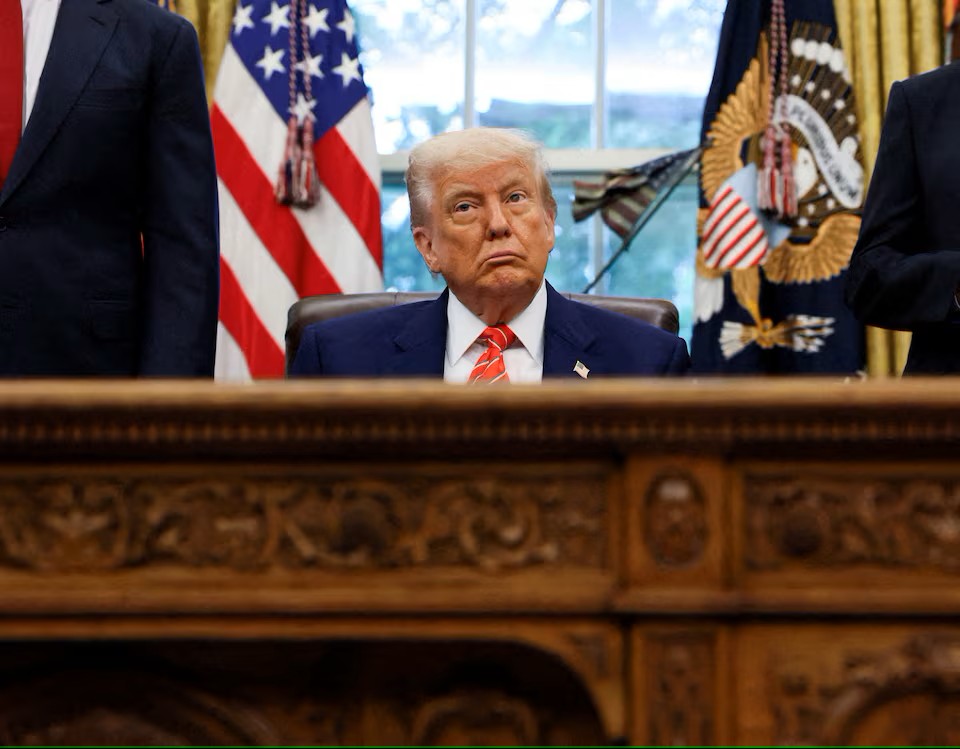
Recently, a coalition of 20 states including California, Illinois and New York jointly initiated two lawsuits, accusing the Trump administration of attempting to link federal funding with the degree of cooperation of local governments in immigration law enforcement. This move was accused by the plaintiff state of violating the principle of separation of powers in the US Constitution and was criticized as "abuse of federal power", suspected of coercing local governments to accept specific federal policies.
This lawsuit was jointly initiated by the attorneys general of each state, with the defendants including the U.S. Department of Transportation, the Department of Homeland Security, and relevant officials. According to court documents, the plaintiff believes that the Trump administration, through executive orders and policy pressure, forced state and local governments to cooperate with the federal stance on immigration issues, otherwise they would face the risk of reduced or even cut federal funding. This approach not only undermines local autonomy but also is suspected of overstepping its authority to interfere with the exclusive financial control power of the Congress.
It is learned that the focus of the controversy lies in an executive order signed by Trump. According to this order, any local government that fails to actively cooperate with federal immigration enforcement or is recognized as a "sanctuary city" may lose federal financial support, including transportation infrastructure construction and emergency management. The US Department of Transportation and the Department of Homeland Security subsequently issued a notice, linking the allocation of federal funds to local immigration law enforcement cooperation, which further aroused dissatisfaction among local governments.
California Attorney General Rob Bonta said at a news conference that this practice was a "blatant abuse" of the federal funding system. The Trump administration is using funds that have nothing to do with immigration law enforcement, such as those used for building roads and dealing with natural disasters, as chips to force states to submit. This is not only unreasonable but also completely illegal.
In these two lawsuits, the plaintiff states emphasized that the US Constitution clearly stipulates that the power of financial appropriations belongs to Congress, and the executive branch has no right to arbitrarily modify the appropriation conditions through policies or orders. Linking the appropriation directly to the immigration policy is actually bypassing Congress and using economic means to "punish" uncooperative states. This approach is widely regarded as violating the principle of state rights stipulated in the Tenth Amendment of the Constitution and also infringing upon the autonomy of local governments.
The litigation documents further point out that the federal government has no right to "force" the states to cooperate with its preferred policies through the issue of grants; otherwise, this would undermine the balance between the states and the federal government under the federal system. Especially on the issue of immigration, which is highly sensitive and involves human rights, forcibly promoting a unified policy model is more likely to trigger social confrontation.
Although this move has been strongly opposed by many state governments, at the practical operation level, some states and cities that rely on federal funds still have to consider "compromise". Projects such as transportation construction and emergency response plans often require a large amount of financial support. Once the allocation is restricted, it will directly affect people's lives and the safety of infrastructure. In response, the plaintiff stated that the federal government should ensure the sustainability of basic public funds rather than using them as a political tool.
The joint lawsuit filed by 20 states this time is a clear challenge to the Trump administration's federal funding policy and also reflects the intensification of the contradiction between the federal and local governments in the current American political ecosystem. The immigration issue, as a sensitive topic that affects all aspects of society, its governance must balance the interests of all parties within the legal framework. If state rights are merely interfered with through executive orders, it may not only trigger a legal crisis but also undermine the spirit of the rule of law and the foundation of the federal system that the United States has always advocated.
At present, two lawsuits have officially entered the judicial process, and the federal court will make a ruling on them in the coming months. No matter what the outcome of the judgment is, this dispute intertwined with law and politics is bound to have a profound impact on the definition of the relationship between the federal and local governments in the future.

According to a recent report by Rich Asplund, a columnist for Barchart, the global sugar market is currently experiencing a complex and profound supply-demand game.
According to a recent report by Rich Asplund, a columnist f…
On January 13th local time, the three major US stock indice…
Recently, the 2026 edition of the MIT Technology Review lis…
On January 15, 2026, the US military announced the seizure …
At the 2026 J.P. Morgan Healthcare Conference, a joint anno…
For much of 2025, the market was rethinking whether the dol…